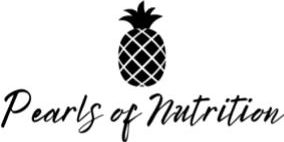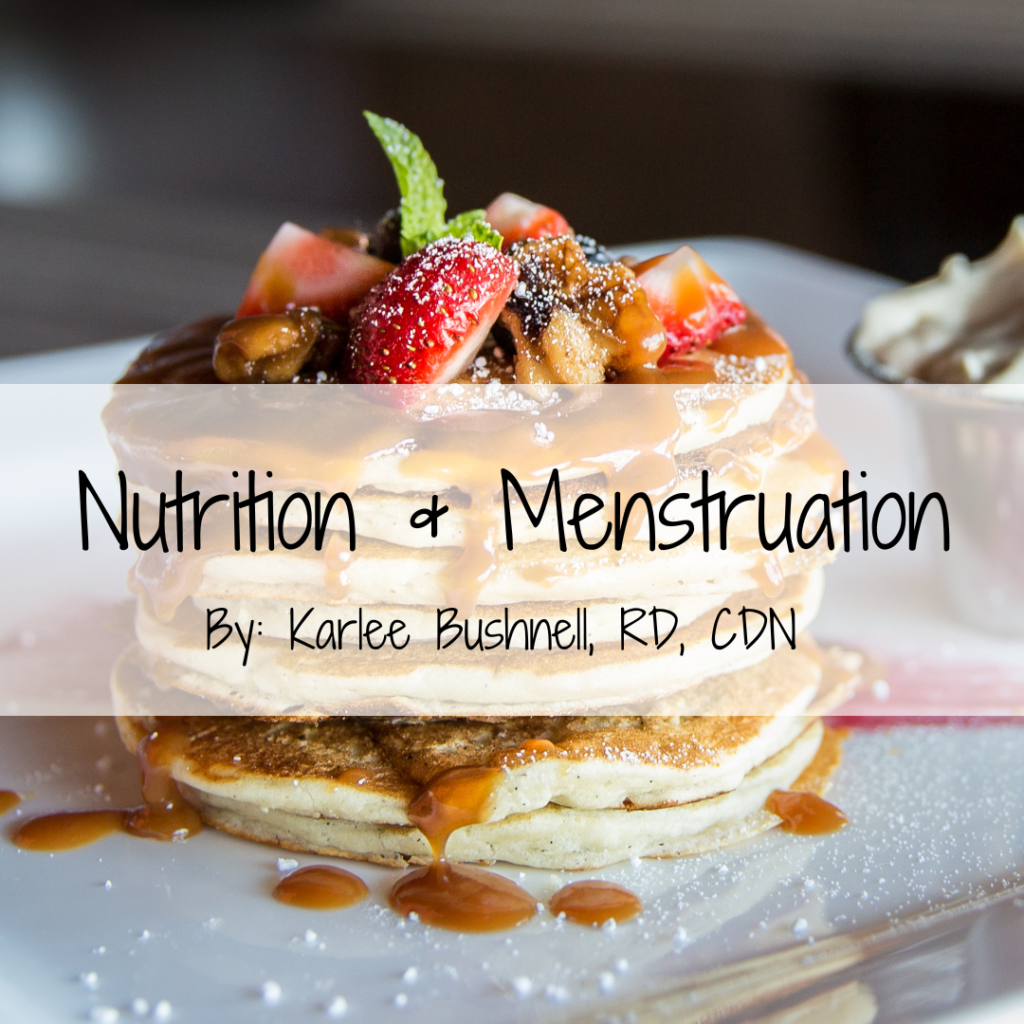A very common theme that I hear from clients who menstruate is “that time of the month” can present many unique challenges, especially when following a meal plan and/or working to listen to hunger and fullness signals (if you need a refresher on hunger and fullness, check out this post on the blog).
Evidence shows that energy needs do rise, especially during the premenstrual phase. Other factors, such as hormones related to the menstrual cycle can also stimulate appetite (1). Each month the female body is preparing for pregnancy, and “if no pregnancy occurs, the uterus, or womb, sheds its lining” (2), so it makes sense that if the body is getting ready to potentially create human life, we may need to honor a little bit more hunger alongside other natural fluctuations! So let’s discuss some tips that can help.
1. Honor Your Cravings
This tip is an important practice to begin exploring with your Registered Dietitian (RD) as it relates to your relationship to food even outside of menstruation. According to Evelyn Tribole, MS, RDN, CEDRD-S and co-author of Intuitive Eating, “if you tell yourself that you can’t or shouldn’t have a particular food, it can lead to intense feelings of deprivation that build into uncontrollable cravings and, often, binging” (3).
The more we try to honor cravings without attaching a judgment to them, we foster a sense of trust between ourselves and our bodies. Even working to challenge the connotation of what the word “craving” means to a client can be helpful. All too often I hear a client say “Well if I crave a salad, then that’s fine and I will make or buy a salad… but if I crave chocolate, I don’t think I can trust this”. What is the difference between these examples other than the judgment attached to each food? Either type of “craving” is simply a message from the body, and if we’re able to respond, we should!
Please also keep in mind that the more you’re able to better nourish your body adequately and consistently with a variety of foods, it’s normal for cravings to decrease in frequency and/or intensity as your body will be better nourished overall. Again, this is not to say that cravings are bad or wrong by any means, but can oftentimes be a signal that your body is trying to make up some sort of discrepancy in not meeting balance or energy needs with regularity, and should be further explored with your RD!
For individuals who are on a prescribed meal plan, please make sure to discuss how to best navigate this with your RD. Some clients find that they can lean on more energy dense options during this time to better meet their needs while still completing their meal plan, but some clients might need to eat past their meal plan to feel satisfied. Remember, your meal plan is always a minimum expectation and willingness to be flexible and explore this with your RD is a strong sign of prioritizing recovery.
2. Expect Natural Ebbs and Flows
As you explore working alongside your body versus against it, you might start to more so feel the natural ebb and flow throughout the month. You may notice that you retain more water prior to your period, perhaps you become more irritable or tired, you get headaches or any combination of these and more. Yes, while many of these things can be both physically and emotionally challenging, we can know that they’re temporary and normal! Per Jessica Setnick, MS, RD, CEDRD “for many women, the days before and during menstruation are accompanied by mood changes and food cravings”, which Jessica reiterates is important for treatment teams to educate clients and help to normalize “these cravings and physical symptoms, such as bloating, to help diminish the shame associated with perceived weight gain and lack of control of eating”. (4). Practice extra compassion, curiosity, and neutrality when experiencing any of these symptoms. Additional rest, heating pads, pain relievers (natural or OTC) are all great items to have on standby.
3. Utilize Coping Mechanisms
As above, I want to validate that it can be both physically and emotionally taxing during that time of the month. Managing stress is also a proven health promoting behavior; so this is a great time to lean on your coping skills or work with your treatment team to come up with a comprehensive list. Some ideas include:
● Take a nap
● Talk to a loved one
● Include movement if you feel up for this/it is allowed by your treatment team ● Do an art/craft you enjoy
● Work on a puzzle
● Watch a favorite movie or tv show
● Get outside
● Listen to music
● Journal
Please remember that no information in this blog post can replace care or recommendations from your treatment team, and this general advice cannot speak to the complex and nuanced experiences someone may have with any of these topics discussed. Be sure to speak to a medical professional for any questions or concerns.
Sources:
1. https://www.betterhealth.vic.gov.au/health/healthyliving/nutrition-womens-extra-n eeds
2. https://medlineplus.gov/menstruation.html
3. https://www.evelyntribole.com/resources/intuitive-eating-resources/principles-of-i ntuitive-eating/ 4. Jessica Setnick, MS, RD, CEDRD, Pocket Guide to Eating Disorders, 2nd Ed.



